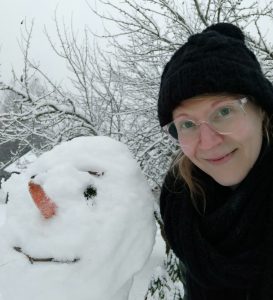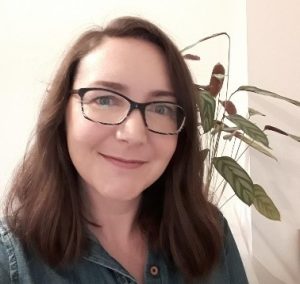This community engagement project is led by two University of Bristol researchers who are working together on the ‘What does vaccination mean to people aged 55+?’ project. Both are members of the NIHR Health Protection Research Unit in Behavioural Science and Evaluation at the University of Bristol.
Taru Silvonen is a research assistant with a PhD in sociology. Her previous work has focused on neighbourhood and community development alongside social support networks.
“I joined University of Bristol in March 2021 to work on this project, but I’ve actually lived in Bristol for over 5 years. Bristol is my second home in the UK, after living in Manchester for a good few years. My roots are in Finland but I’ve also done research in Mexico so I like to keep things fairly international!
 The community engagement work combines my past experience of working with communities with health research which is still a new world to me. I’m really interested in participation and what makes people come together to do things so it’s great to be able to focus on this alongside a major research project. I’m looking forward to chatting to people – whether online or in person – and hearing how we could make research more approachable and interesting to everyone.”
The community engagement work combines my past experience of working with communities with health research which is still a new world to me. I’m really interested in participation and what makes people come together to do things so it’s great to be able to focus on this alongside a major research project. I’m looking forward to chatting to people – whether online or in person – and hearing how we could make research more approachable and interesting to everyone.”
Hannah Christensen is Senior lecturer in Infectious Disease Mathematical Modelling. She is an epidemiologist with a wealth of expertise on infectious diseases, vaccines, mathematical modelling and health economics.
“I spent my student days in Nottingham, but have mostly lived in the Midlands and Southwest of England. Before joining the University of Bristol in 2004 I worked in public health roles supporting outbreak investigations and surveillance work for different infectious diseases in the UK. Most of my academic work so far has been focused on vaccinations for children and adolescents, helping to shape policy both in the UK and internationally.

I’m now very excited to be working with adults and exploring their views on this topic. Research is only useful if it’s truly relevant to the people involved and the best way of doing that is working together with the people and communities affected. I’m really pleased that we’ve been able to get funding to support our community engagement work so we can talk to people about what we’re doing, particularly those who wouldn’t normally get involved with research, to make what we do more accessible.”

